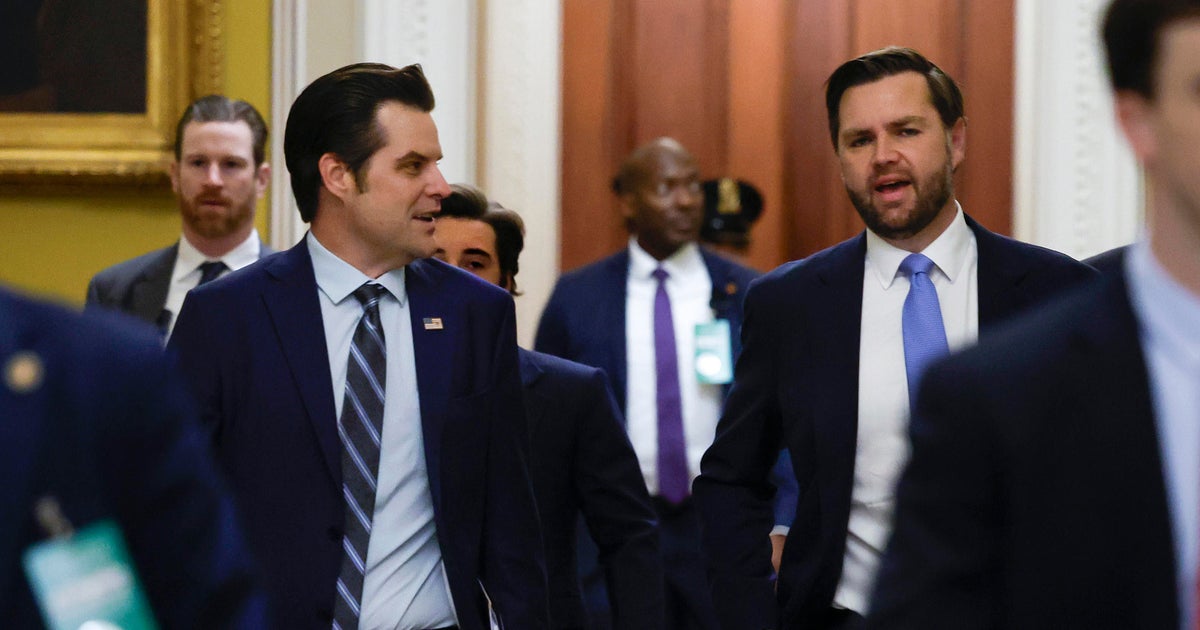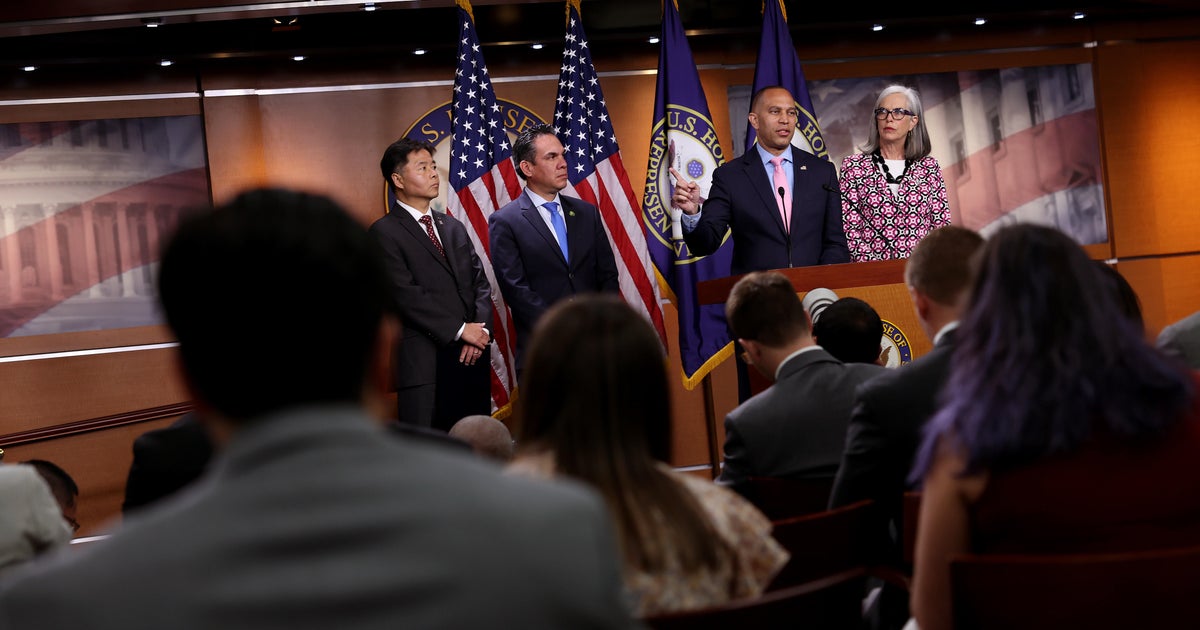Trump ramps up campaign presence in final weeks before midterm elections
President Trump told Fox News' Sean Hannity in July that he would be campaigning "six or seven days a week" in the months before the midterm elections on behalf of "all of these great people that do have a difficult race." Between last Saturday and this past Friday, Mr. Trump did not quite make it to six days a week, but he did appear at four campaign rallies in four states. He is slated to speak at another rally in Kentucky on Saturday.
Although the president seems to enjoy holding these rallies, he has other motives in traveling the country, namely maintaining a Republican majority in Congress.
Democrats are widely expected to retake the majority in the House of Representatives this year, and have a smaller chance of capturing the Senate. The president is not on the ballot this year, but he is making the midterm elections a referendum on his administration by rallying across the country and personalizing the races.
The vulnerable Republicans he is stumping for, as well as the national party, are hoping that enthusiasm for Mr. Trump at his rallies will translate to turnout at the ballot box in November.
"This is also a referendum about me and the disgusting gridlock they'll put this country through," Mr. Trump said of Democrats at a rally in Mississippi earlier this month.
Mr. Trump has recently campaigned primarily in states that he won in 2016, often making repeat appearances in a state. Since July, he has held rallies more than once in Pennsylvania, Ohio, West Virginia and Montana. He also rallied in Nevada and Minnesota, where he lost to Hillary Clinton by a narrow margin.
The rallies follow a common structure for Mr. Trump. Crowds usually hear a litany of his accomplishments, such as negotiating new trade agreements like the United State-Mexico-Canada Agreement, and low unemployment numbers. The president also routinely condemns members of the gang MS-13 and promise a border wall between the U.S. and Mexico. He also typically criticizes the "fake news media."
Mr. Trump's recent campaign appearances have differed from his post-election rallies in 2017 and from those he held earlier this year. He has emphasized attacks on Democrats, calling them the party of "open borders" and "crime," whereas Republicans are the party of "law and order" and "jobs, jobs, jobs." Mr. Trump even noted that he repeats this phrase without argument in many of his rallies.
"I go around saying Democrats are the party of crime, and no one even challenges me," he said at the rally in Ohio on Friday. He has also repeated that Democrats are "bad people," and often uses the phrase that their purpose is to "delay and obstruct."
He has allocated time for condemning Democratic leaders in Congress, Senate Minority Leader Chuck Schumer and House Minority Leader Nancy Pelosi. And since the controversy over Brett Kavanaugh's confirmation to the Supreme Court, he has also targeted Democratic members of the Senate Judiciary Committee like Sen. Dianne Feinstein and "Da Nang Dick" -- Sen. Richard Blumenthal.
Mr. Trump has used Democratic opposition to Kavanaugh's confirmation as a rallying cry.
"Their rage-fueled resistance is starting to backfire at a level that nobody has ever seen before," Mr. Trump said about Democrats in the Senate at a rally in Minnesota earlier this month. He called Democrats "rule of the mob" at the rally in Ohio Friday.
The president has also placed more emphasis on voting than he has in the past, calling on rally attendees to register to vote or vote early for Republicans, to harness their enthusiasm while it's fresh.
"Get out in 2018 because you're voting for me in 2018," he said at a September rally in Missouri.
Another unusual aspect of recent Trump rallies is how the president will often cede the stage to the candidate he is supporting. These candidates generally tend to focus their speech on their support for the president, and their opposition to their Democratic opponent.
At the rally in Pennsylvania Thursday, Republican Rep. Mike Kelly said that Mr. Trump was "the strongest president we have seen in our lifetime," and praised the president for presiding over the "resurrection" of the country, to wild cheers.




